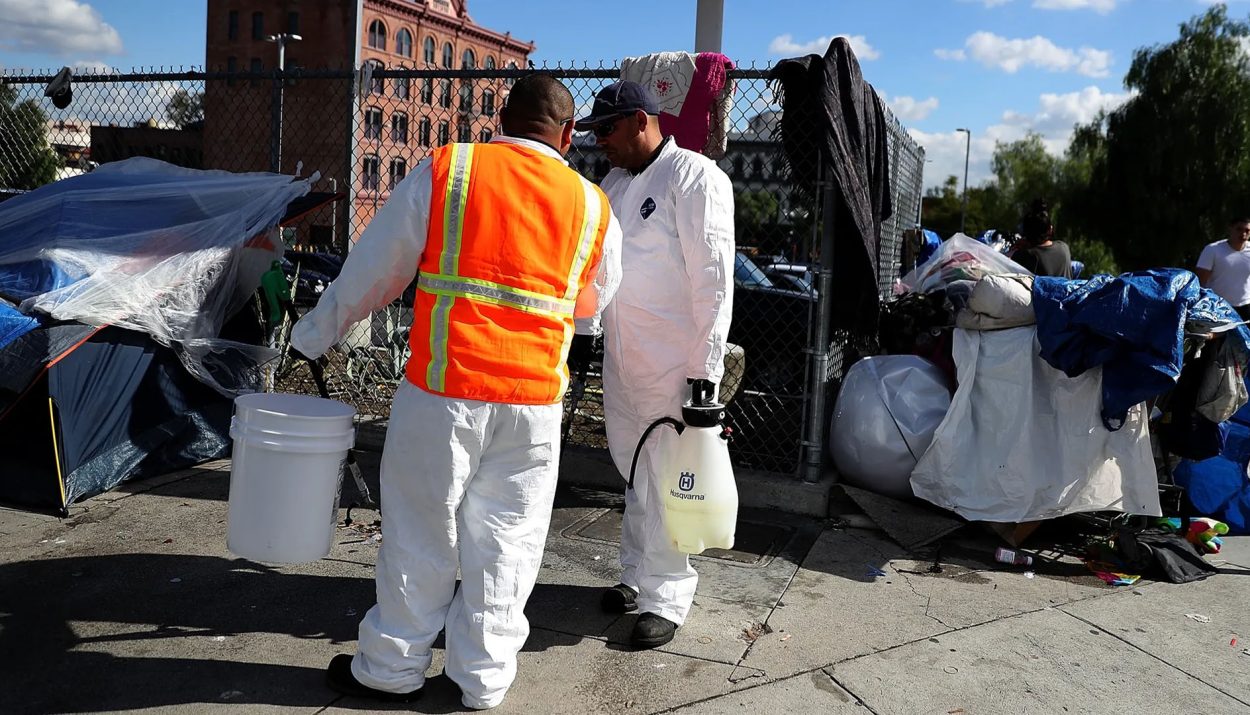According to a report released on Tuesday by the California State Auditor, the state has spent nearly $24 billion to address homelessness since 2018, yet the situation has only worsened. The report criticizes California state for failing to track properly whether spending such a substantial sum of taxpayers’ money has achieved any meaningful impact or not.
30% Of Homeless Americans Live In California
Homelessness is a very urgent and challenging issue in California. It is not rare to find makeshift tents lining the streets and affecting businesses in towns and cities across the state.

It is estimated that California has around 171,000 homeless individuals. This accounts for approximately 30% of the total homeless population in the country.
Lack of Reliable Data to Understand What Is Going On
According to the state auditor report, despite spending billions of dollars on over 30 homeless and housing programs between 2018 and 2023, California lacks reliable data to assess why the issue hasn’t improved across many of its cities.

In a letter addressed to Governor Gavin Newsom and lawmakers, State Auditor Grant Parks wrote, “This report concludes that the state must do more to assess the cost-effectiveness of its homelessness programs.”
Only Two Programs Were Found To Be Cost Effective
The audit reviewed five programs that had collectively received a whopping $13.7 billion in funding. The audit revealed that only two of the five programs can be defined as “likely cost-effective.”

One of the initiatives is focused on converting hotel and motel rooms into housing. The other one provides housing assistance to families that are on the verge of homelessness.
Cost-Effectiveness of Converting Hotel and Motel Rooms Into Housing
The audit revealed that the $3.6-billion program converting hotel and motel rooms into housing is significantly more cost-effective than building new homes. This program a key part of Newsom’s homelessness strategy.

The average cost per room turns out to be at least 2.5 times lower than what it would cost to construct a new dwelling.
Cost-Effectiveness Of The Housing Assistance Program
The housing assistance program, allocated $760 million over five years, provides between $12,000 and $22,000 (varying by county) to help low-income families continue living in their homes.

This amount is relatively small compared to the approximately $50,000 per person the state spends once people become homeless.
The Other Programs Couldn’t Be Reviewed
The effectiveness of the other three programs couldn’t be assessed because there wasn’t enough data available to make such an assessment.

These three programs have received a combined total of $9.4 billion since the year 2020.
Lack of Transparency
Democratic state Senator Dave Cortese had requested the audit after visiting a large homeless encampment in San Jose last year.

Cortese said the findings reveal “a data desert” while highlighting a troubling lack of transparency at all levels.
Difficult To Draw Meaningful Conclusions
Cortese refrained from advocating for a complete cessation of future spending on homelessness, though he expressed his concerns regarding programs that are meant to help the homeless.

Cortese said, “Despite (the auditor office’s) professionalism and best efforts, they are at this time unable to … draw conclusions about things like whether or not overhead is appropriate or too high.”
Lack of Accountability
Republican state Senator Roger Niello expressed his concerns over the troubling lack of accountability highlighted by the audit.

Niello said, “California is facing a concerning paradox: despite an exorbitant amount of dollars spent, the state’s homeless population is not slowing down. These audit results are a wake-up call for a shift toward solutions that prioritize self-sufficiency and cost effectiveness.”
Tackling Homelessness Is A Top Priority For Newsom
While Newsom has made addressing homelessness a key priority, this rapidly escalating crisis is likely to follow him in case he chooses to pursue national elected office. Newsom has advocated for legislation to facilitate the involuntary treatment of individuals facing behavioral health challenge.

Newsom has also campaigned vigorously for a proposition imposing stringent mandates on counties allocating funds toward housing and drug treatment initiatives aimed at combating California’s homelessness crisis. The proposition was barely approved by voters in March.
Absence of Proper Data Tracking and Assessment
The audit revealed that the California Interagency Council on Homelessness, which is responsible for overseeing the various programs, hasn’t been tracking spending or assessed program effectiveness since June 2021.

The council lacks a consistent method for gathering outcome data from the various homelessness programs. It also does not verify the accuracy of data provided by state municipalities.
California Interagency Council Has Issued Only One Report So Far
The audit discovered that the state database contains test entries and deleted records, potentially leading to overstated participant numbers in some of the programs.

California Interagency Council was established by lawmakers in 2017 to address California’s homelessness crisis. However, the council has reportedly issued only one report on homelessness spending so far.
The State Does Not Have Proper Information to Take Informed Measures
The audit report says, lacking reliable and up-to-date data “the state will continue to lack complete and timely information about the ongoing costs and associated outcomes of its homelessness programs.”

The head of the California Interagency Council, Meghan Marshall, sent a written response to the auditor’s office. Marshell acknowledged the audit’s findings and expressed her commitment to implementing its recommendation “where possible.”
Council Says Local Governments Need To Be Held Accountable
In response to questions asked by The Associated Press, the council stated that local governments need to be held accountable for the implementation of the programs and also for data collection.

The statement says, “The State Auditor’s findings highlight the significant progress made in recent years to address homelessness at the state level, including the completion of a statewide assessment of homelessness programs. But it also underscores a need to continue to hold local governments accountable, who are primarily responsible for implementing these programs and collecting data on outcomes that the state can use to evaluate program effectiveness.”






